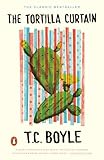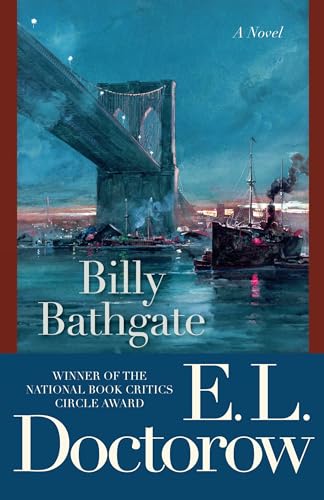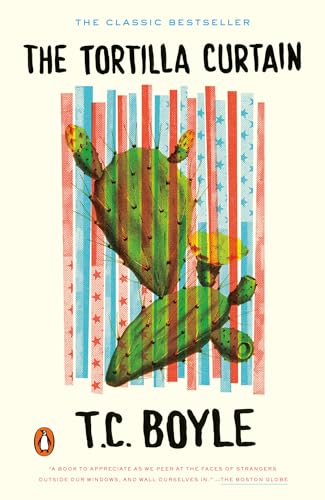When I found Jim Thompson’s The Transgressors at a recent used book sale, I became cartoonishly excited. Thompson is one of my favorite pulp novelists, and there was nothing to dislike about my find: its cover depicted an old coupe stuck in rutted mud, with someone rushing, I guessed, to check a captive in its trunk. The back-cover copy described a reliably sadistic tale; an old New Republic blurb promised “a tour of hell.” It was called The Transgressors, for Christ’s sake. I couldn’t have asked for more.
 My excitement stemmed from The Nothing Man, a 1954 Thompson novel that I discovered a decade ago, having never before heard of the book or the author. It told the story of a sexually disfigured veteran who goes on a killing spree to cover up his secret — as if being a serial killer was the lesser shame. It was a bizarre, unsettling book, angry with energy, that seemed to have been written yesterday, not during the Dwight D. Eisenhower years.
My excitement stemmed from The Nothing Man, a 1954 Thompson novel that I discovered a decade ago, having never before heard of the book or the author. It told the story of a sexually disfigured veteran who goes on a killing spree to cover up his secret — as if being a serial killer was the lesser shame. It was a bizarre, unsettling book, angry with energy, that seemed to have been written yesterday, not during the Dwight D. Eisenhower years.
 Unfortunately, it’s been downhill from there. In the years since, I’ve returned to Thompson again and again, and I’ve never recaptured the feeling that jumped from The Nothing Man. The Getaway — made famous by Steve McQueen, and later, Alec Baldwin and Kim Basinger — came close, but was derailed by an outré epilogue that seemed imported from a different book. The Killer Inside Me, The Golden Gizmo, Pop. 1280 — all were fine, but none supplied the blast of that first discovery. The Transgressors turned out to be readable, but was the worst Thompson I’ve read — and it led me to ask myself a question common to fading relationships: Is it him or is it me?
Unfortunately, it’s been downhill from there. In the years since, I’ve returned to Thompson again and again, and I’ve never recaptured the feeling that jumped from The Nothing Man. The Getaway — made famous by Steve McQueen, and later, Alec Baldwin and Kim Basinger — came close, but was derailed by an outré epilogue that seemed imported from a different book. The Killer Inside Me, The Golden Gizmo, Pop. 1280 — all were fine, but none supplied the blast of that first discovery. The Transgressors turned out to be readable, but was the worst Thompson I’ve read — and it led me to ask myself a question common to fading relationships: Is it him or is it me?
 I’ve experienced this pattern — manic love, followed by a futile attempt to regain said manic love — with others: I fell for T.C. Boyle after my brother slipped me The Tortilla Curtain, and despite Drop City, When the Killing’s Done, The Harder they Come, and others, it remains my favorite Boyle. Portnoy’s Complaint, The Sun Also Rises, and Billy Bathgate are my favorite Philip Roth, Ernest Hemingway, and E.L. Doctorow novels — and were the first of each I read. These are legendary figures, responsible for a raft of classics. Is it possible that out of all of their works, those three are the best? Did I just happen to choose each one’s greatest effort right out of the gate?
I’ve experienced this pattern — manic love, followed by a futile attempt to regain said manic love — with others: I fell for T.C. Boyle after my brother slipped me The Tortilla Curtain, and despite Drop City, When the Killing’s Done, The Harder they Come, and others, it remains my favorite Boyle. Portnoy’s Complaint, The Sun Also Rises, and Billy Bathgate are my favorite Philip Roth, Ernest Hemingway, and E.L. Doctorow novels — and were the first of each I read. These are legendary figures, responsible for a raft of classics. Is it possible that out of all of their works, those three are the best? Did I just happen to choose each one’s greatest effort right out of the gate?
I would say that I didn’t. My experience with Thompson, and to a lesser degree with Boyle, has led me to believe that the discovery of a new style — Thompson’s turbo-charged dissolution; Boyle’s burbling streams of words — eclipses the storytelling that the style supports. Reading the stylistically unfamiliar — be it Evie Wyld or Lauren Groff or Patrick deWitt — can be so pleasingly disorienting that it leaves the reader giddy: This is incredible, we think as we flip on through. This is a totally new experience. As a reader, it’s the moment you seek — but that euphoria can also distort your inner Michiko Kakutani and set future expectations impossibly high.
 Breakfast of Champions might not have been Kurt Vonnegut’s hands-down masterpiece, but I read it before any of his others — and for that, it’s elevated in my mind. With its drawings of sphincters and cows and general jokiness, it’s no Cat’s Cradle or Slaughterhouse-Five — but it doesn’t need to be, because the Vonnegut basics were there. And most importantly, for me, it came first. When you see a beautiful stranger across a crowded room, it doesn’t matter that he or she might not be having the most attractive day of his or her life. The spark fires either way, and you won’t forget the moment.
Breakfast of Champions might not have been Kurt Vonnegut’s hands-down masterpiece, but I read it before any of his others — and for that, it’s elevated in my mind. With its drawings of sphincters and cows and general jokiness, it’s no Cat’s Cradle or Slaughterhouse-Five — but it doesn’t need to be, because the Vonnegut basics were there. And most importantly, for me, it came first. When you see a beautiful stranger across a crowded room, it doesn’t matter that he or she might not be having the most attractive day of his or her life. The spark fires either way, and you won’t forget the moment.
 This isn’t to say that quality doesn’t matter. The first Danielle Steel novel you read will be as crummy as your last, and no matter when you read Tough Guys Don’t Dance, it won’t top The Naked and the Dead. But when a work is discovered can, at the very least, insert a welcome uncertainty to an overbearing consensus. In everything I’ve read about Jim Thompson, I haven’t seen much mention of The Nothing Man. This isn’t all that surprising, since he wrote more than 30 books. But critics consistently cite The Killer Inside Me and Pop. 1280 as two of his best. Maybe they are. But maybe those critics would think differently if they’d read The Nothing Man first. As for me, I’ll keep trying: there are still a few unread Thompson novels sitting on my shelf.
This isn’t to say that quality doesn’t matter. The first Danielle Steel novel you read will be as crummy as your last, and no matter when you read Tough Guys Don’t Dance, it won’t top The Naked and the Dead. But when a work is discovered can, at the very least, insert a welcome uncertainty to an overbearing consensus. In everything I’ve read about Jim Thompson, I haven’t seen much mention of The Nothing Man. This isn’t all that surprising, since he wrote more than 30 books. But critics consistently cite The Killer Inside Me and Pop. 1280 as two of his best. Maybe they are. But maybe those critics would think differently if they’d read The Nothing Man first. As for me, I’ll keep trying: there are still a few unread Thompson novels sitting on my shelf.
Image Credit: Pexels/Ekrulila.

















